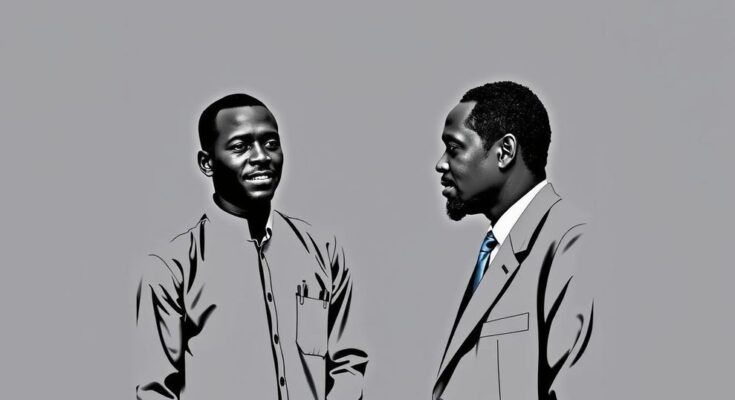South Sudan’s government dismissed allegations regarding President Kiir’s family’s extensive business interests as unfounded and malicious. A report from The Sentry, a US-based watchdog, traced 126 companies linked to Kiir’s family in critical sectors of the economy, raising concerns about corruption. The government defended the legality of these businesses while emphasizing its constitutional allowances. The nation faces severe governance and economic challenges, worsened by delayed elections and rampant corruption.
On Thursday, the government of South Sudan publicly refuted allegations made by the US-based organization The Sentry, which claimed that President Salva Kiir’s family has developed a significant corporate network within one of the world’s most impoverished nations. The Sentry reported the existence of 126 companies linked to the Kiir family that cover a range of critical industries in South Sudan, including but not limited to mining, petroleum, banking, trade, aviation, private security, and logistics.
The report emphasized the importance of transparency in the face of these allegations, especially considering South Sudan’s history of corruption. It accused Kiir’s family of being involved in procurement scandals that have allegedly resulted in the misappropriation of billions of dollars, funds intended for the basic welfare of the South Sudanese populace. In response, the president’s office described the accusations as “baseless and malicious,” asserting that South Sudan’s constitution allows all citizens, including family members of the president, to engage in lawful business activities.
While The Sentry disclosed that various relatives of President Kiir were shareholders in these companies, including his spouse Mary Ayen Mayardit and several children and grandchildren, it clarified that President Kiir’s name was not found on any corporate documentation tied to these businesses. Despite this, South Sudan’s transitional constitution, established in 2011, prohibits the president and state officials from engaging in commercial enterprises during their terms.
Co-founded by actor George Clooney, The Sentry focuses on uncovering issues of corruption, money laundering, and exploitation within conflict settings. South Sudan, which ranks 177 out of 180 countries on Transparency International’s corruption perceptions index, continues to struggle with rampant corruption, especially in the face of President Kiir’s recent decision to postpone crucial elections until December 2026, much to the dismay of international stakeholders.
The United Nations Commission on Human Rights in South Sudan has attributed the stagnant political transition to pervasive corruption and the systematic diversion of public resources. They indicated that revenue streams, particularly from oil, are being severely mismanaged to enrich political elites and their associated networks. Despite South Sudan’s abundant oil reserves, which historically contribute around 90 percent to its GDP, production and revenue flows have been critically diminished following a significant pipeline disruption in war-torn Sudan this past February.
The ongoing conflict and economic hardships in South Sudan have fostered a climate of corruption and nepotism, making scrutiny of political leaders and their families increasingly urgent. The Sentry’s report sheds light on the Kiir family’s potential influence over major sectors that are vital for South Sudan’s economic stability. Transparency and accountability are critical in a nation that has trillions of dollars in resources yet ranks abysmally high on corruption indices. The political landscape remains charged, particularly with the announcement of delayed elections, raising concerns about governance and citizens’ rights.
The South Sudanese government’s vigorous denial of The Sentry’s allegations highlights the contentious relationship between transparency advocates and political elites in the country. As the nation struggles to overcome its deep-rooted corruption issues and political instability, the revelations concerning President Kiir’s family businesses illuminate the continued challenges ahead. With essential elections postponed and resources mismanaged, the road to reform appears fraught with obstacles, impacting the South Sudanese people’s quest for better governance and economic improvement.
Original Source: www.france24.com




